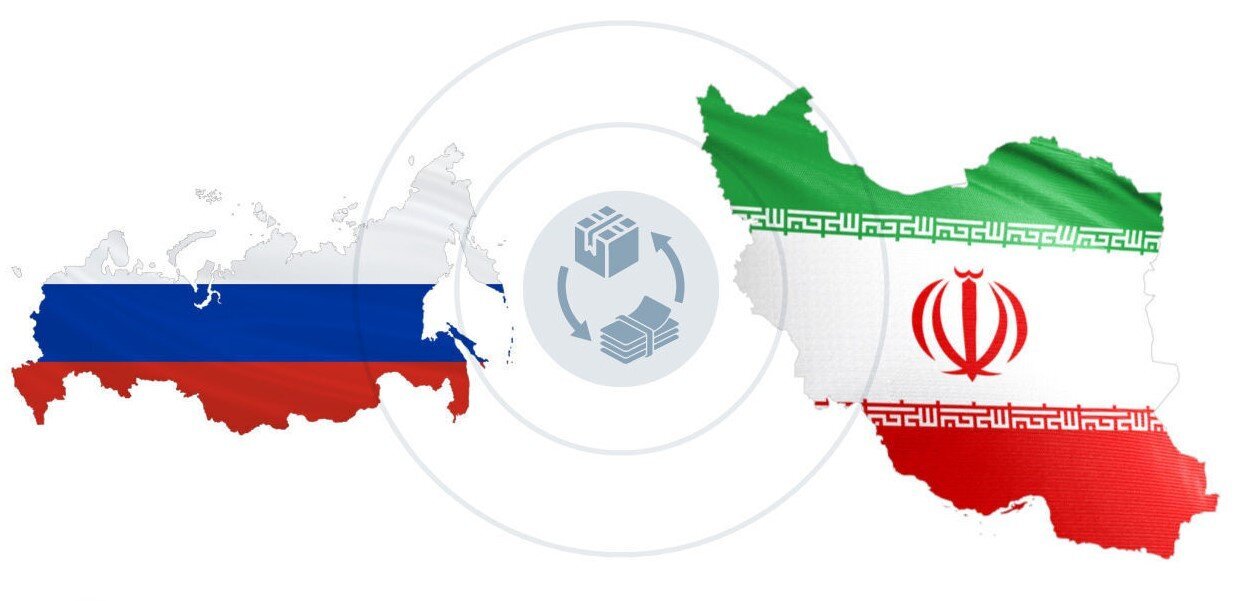Iran’s non-oil export to Russia increases 17%

TEHRAN- The value of Iran’s non-oil export to Russia increased by 17 percent during the first ten months of the current Iranian calendar year (March 20, 2024-January 19, 2025), as compared to the same period of time in the past year, the spokesperson for the Trade Development Committee of the House of Industry, Mining, and Trade announced.
Ruhollah Latifi said that Iran exported non-oil commodities valued at $889.325 million to Russia in the ten-month period.
On the sidelines of the third Eurasia International Trade Exhibition in Tehran, a delegation comprising economic officials and executives from 15 Russian companies met with representatives of 32 Iranian technology and knowledge-based firms to discuss the export potential of both countries.
The Iran-Russia business meeting was held on February 22 as part of the Eurasia International Trade Exhibition. The event was inaugurated by Iran’s president, the minister of industry, mining and trade, and the head of the Tehran Chamber of Commerce.
A 30-member Russian delegation, including Andrey Belyanikov, head of the Russian trade office in Tehran; Khosro Hasan Beigov, head of Russia’s trade center in Tehran; and Leonid Lazhchko, chairman of the Iran-Russia Business Council, along with executives from 15 Moscow-based companies, met with Iranian business leaders and company executives.
The meeting, held at the Iran Hall of the exhibition center, provided an opportunity for engagement between 32 Iranian technology and IT firms and their Russian counterparts.
In addition to bilateral meetings (B2B), participants explored export opportunities between the two countries.
Behdad Ghanbarnejad, head of Moscow’s export center in Iran, highlighted the high quality of the event, stating that the meetings, set to continue until February 25, have been beneficial for both sides.
"The increased participation of Russian and Iranian companies in this event reflects the growing trend of trade relations between the two countries," he added.
Now in its second consecutive year, the business meeting is seen as a significant step in strengthening economic and trade cooperation between Iran and Russia.
Meanwhile, a Russian trade delegation currently visiting East Azarbaijan province met with the head of Iran Chamber of Commerce, Industries, Mines, and Agriculture (ICCIMA) and the Governor of East Azarbaijan, on February 13.
The delegation, consisting of representatives from 19 Russian companies operating in sectors such as chemicals, electronics, machinery, IT products, fruit, industrial equipment, and rail transport, engaged in discussions with ICCIMA Head Samad Hassanzadeh and East Azarbaijan Governor Bahram Sarmast.
Held at the Governor's office, the meeting focused on exploring the existing potential for cooperation between the two countries and reviewing efforts to promote Iran’s economic and trade capabilities in various Russian cities.
In January, Tehran Chamber of Commerce, Industries, Mines and Agriculture (TCCIMA) and Moscow Chamber of Commerce and Industry have agreed to strengthen trade relations between Iran and Russia, particularly in the food industry.
The agreement was reached during a webinar titled "Trade in Iran and Russia with a Focus on the Food Industry," organized by the Tehran Chamber’s International Affairs Department in collaboration with Moscow’s chamber and Business Russia.
The event, attended by economic operators from both countries, focused on increasing trade in food and agricultural products while enhancing collaboration between private sector entities. Discussions highlighted strategies for identifying economic opportunities and fostering direct business links between Iranian and Russian companies.
During the meeting, Mehdi Sadeghi, deputy head of the TCCIMA, emphasized that Russia is a strategic market for Iran, citing the ratification of the Iran-Eurasian Economic Union free trade agreement by the Iranian parliament and EAEU member states as a key step toward expanding economic ties.
He also pointed to Iranian President Masoud Pezeshkian’s recent visit to Moscow, during which Iranian and Russian officials signed a long-term strategic cooperation document. According to Sadeghi, this agreement paves the way for joint investments, financial cooperation, infrastructure development, and banking collaboration, all of which should be leveraged by the private sectors of both nations.
To further advance this agenda, the Tehran Chamber is preparing a one-year roadmap for cooperation with the Moscow Chamber. This includes hosting business webinars tailored to targeted industries and facilitating Iranian and Russian firms' participation in trade exhibitions and commercial events.
MA
